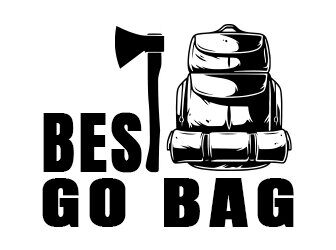Do you own a generator? If so, I’m guessing you’re very happy you made the decision to purchase one.
Considering how many extreme weather events we’ve had the past couple of years, your generator has probably already been put to good use.
But even if you’ve been fortunate enough to not need it yet, you have peace of mind. You know that if your power goes out – for a few hours, several days or even a week or more – you’re ready.
You are prepared to keep the lights on and critical electronic devices running. Even if the rest of your neighborhood goes dark.
Peace of mind on the way
If you don’t own a generator, I’m hoping recent extreme weather events will be a wake-up call. Such as the deadly tornadoes in Kentucky and surrounding states. And the violent storm that caused more than 500,000 power outages in the Heartland.
But you can experience the same peace of mind other generator owners have, knowing you and your family will be protected.
There are many choices when it comes to selecting a generator. To make the process easier, I’d suggest determining which features are most important to you.
That will allow you to eliminate generators that are undesirable or unrealistic for your situation. And narrow down the possibilities.
Considering the options
Today I’m going to let you know what I believe are the most important features of a generator.
These comments are based on extensive research we’ve done. And on what folks like you have told us you’re looking for.
You’ve probably already considered some of these features as you’ve thought about which generator is right for you.
But maybe you haven’t considered all of them. By the time you’re done reading this, you might wonder why you didn’t acquire a generator before.
What is the cost?
First, let’s look at affordability. If something is out of my price range, I don’t want to waste time thinking about it.
You can spend a lot of money on a full-home standby generator. Not to mention the cost of installation. Most of them work well, but you can’t grab it and go.
For significantly less – in the $2,000 to $3,000 range – you can buy a generator that will give you what you need to get through a lights-out situation.
What’s the best power source?
Next, let’s examine how to provide power for your generator. Many generators use gasoline. The disadvantage is that you have to keep the generator outside.
But we’ve all heard the horror stories. People have died from carbon monoxide poisoning because they ran a gas-powered generator in their garage. Or too close to their home’s vents and windows.
I believe the best generators are solar-powered. Capturing the free power of the sun is the best way to power many devices. Including a generator. Especially if your power is temporarily out.
But prior to a blackout, even if the sun isn’t shining, you can power up a solar-powered generator using an ordinary outlet.
What will I need to power?
Before you decide which generator to buy, take a home inventory.
That’s how you’ll determine which items will be the most important to power up during an outage. And how much wattage each requires.
Among them will probably be lights, small appliances, cellphones and laptops. Plus a fridge, microwave oven, space heater, electric blanket and other items.
It’s not crucial to be able to power all these items at once. But you do want to make sure your generator can power a variety of things.
Can I take it with me?
How about portability? I mentioned this a moment ago. Large home systems stay put. There’s no moving them.
Portable gas-powered generators are mobile. But many are heavy and there’s the fire hazard to consider. And you’ll have to carry gasoline wherever you go.
The ideal solar-powered generator is light enough to grab and go at a moment’s notice.
If you have a solar-powered, portable generator weighing less than 50 pounds, you can move it easily from room to room. And take it camping, boating and tailgating.
Is it noisy or smelly?
Noise is another consideration when deciding which generator to purchase.
There are loud ones out there. In addition to being annoying to you and those around you, a loud generator will draw attention to you.
If you’re in a survival situation, that’s the last thing you want. A lengthy blackout will lead to civil unrest. And a loud or smelly generator could bring looters to your home or wherever you’ve bugged out.
The ideal portable, solar-powered generator is so quiet you can sleep near it. It won’t keep you awake or draw others toward you. And it’s safe because it’s fume-free.
This generator checks all the boxes
The Patriot Power Generator 1800 is designed to provide electricity for important devices and equipment during a power outage or disaster situation. From your phone to a space heater. From your fridge to a CPAP machine.
This generator has two outlets and four USB ports. And can power almost any device that would typically plug in.
It also comes with a 25-foot long extension cord. That way you can easily place the solar panel outside while keeping the generator inside.
It weighs only 40 pounds. So, it’s small enough to take anywhere and store discreetly. And you can daisy-chain additional solar panels for even more power and faster charging. It operates quietly and produces no emissions.
Imagine the peace of mind you’ll have when you get your own generator. If a crisis hits and your family asks, “When will the power come back on?” you’ll reassure them that they’re safe. And that they’ll have plenty of electricity to power critical items.


